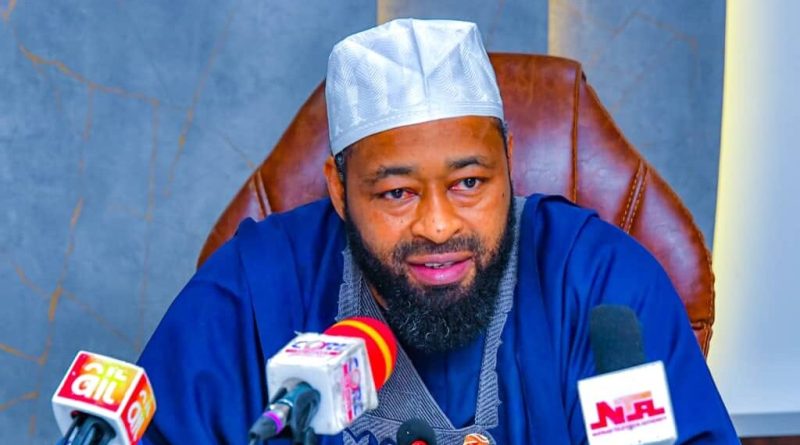Group demands release of student arrested for criticising Niger governor
A human rights organisation, Hope Behind Bars Africa, has demanded the immediate release of Isah Mokwa, a student activist at Ibrahim Badamasi Babangida University (IBBU), Lapai, Niger State, who was allegedly arrested by the police for criticising the state governor.
The organisation’s Communications Officer, Ogechi Ogwuma, made the demand in a statement shared with PREMIUM TIMES.
Mr Mokwa, a vocal critic of Governor Umar Bago of Niger State, was arrested on 23 October, about a week after he posted on his Facebook account, accusing the governor of lying about his administration’s achievements in tackling insecurity and improving infrastructure.
The spokesperson of the Niger State Police Command, Wasiu Abiodun, confirmed the arrest, saying the student was being investigated for a cybercrime offence under the Cybercrime (Prohibition, Prevention, etc.) Act, 2024.
Mr Mokwa has since been transferred to the State Police Command Headquarters in Minna for further investigation.
In the statement, Ms Ogwuma condemned Mr Mokwa’s arrest and detention under the Cybercrime Act, describing it as an attempt to silence dissent.
“This case represents yet another weaponisation of Nigeria’s Cybercrime Act to intimidate citizens, especially young people who dare to hold those in power accountable. Instead of addressing the substance of Abubakar’s comments or engaging citizens in dialogue, the state has chosen to criminalise dissent and send a chilling message to others who might question authority,” she said.
Ms Ogwuma stressed that freedom of expression is a constitutional right guaranteed under Section 39 of the Nigerian Constitution and protected by Article 9 of the African Charter on Human and Peoples’ Rights.
“At this important time, we must all be reminded that the right to Freedom of expression is not a privilege granted by government officials; it is a constitutional right guaranteed under Section 39 of the Nigerian Constitution and protected by Article 9 of the African Charter on Human and Peoples’ Rights. The persistent misuse of cybercrime provisions, particularly Section 24, against journalists, activists, and citizens generally, reveals a pattern of civic repression that threatens Nigeria’s nascent democracy.
“At a time when young Nigerians are using digital platforms to advocate for justice, transparency, and reform, the arrest of a university student for online criticism is both unlawful and morally indefensible. Nigeria cannot continue to preach democracy while jailing its young voices for speaking truth to power,” she added.
Misuse of the Cybercrime law
Mr Mokwa’s arrest comes at a time when the Nigerian government and security agencies are using the Cybercrimes Act to silence critics. The law covers a wide range of digital crimes, including hacking, identity theft, cyberstalking, cyberbullying, financial fraud, and online terrorism.
Section 24 of the Act criminalises the sending of messages through computer systems that are grossly offensive, false, or cause annoyance, inconvenience, or insult to another person. The section carries penalties ranging from fines to imprisonment for up to three years.
Section 24 of the Act has generated criticism from human rights groups, media organisations, and civil society organisations.
Authorities, particularly police and state security agencies, have used the law to arrest and prosecute journalists, activists, and online critics for expressing dissenting opinions or publishing investigative reports.
The Committee to Protect Journalists (CPJ) said at least 29 journalists and critics have been charged with the Act since it was enacted in May 2015.
Dele Farotimi, a lawyer and author, was arrested, detained, and charged based on the section after discussing judicial corruption in his book.
READ ALSO: Governor Bago rules out talks with bandits, bans mining across Niger State
Other demands
Aside from calling for Mr Mokwa’s release, Hope Behind Bars Africa urged the Nigerian Police Force to desist from using the Cybercrime Act to suppress dissent.
It also appealed to the National Assembly to urgently review and amend the law to prevent its misuse and ensure compliance with Nigeria’s human rights obligations.
“We hereby call on the Nigerian Police Force to cease the misuse of the Cybercrime Act to suppress dissent; the National Assembly to urgently review and amend the Cybercrime (Prohibition, Prevention, etc) Act.) Act 2024 is to safeguard against abuse and align it with Nigeria’s human rights obligations; civil society, student unions, and human rights defenders should speak out against this growing culture of criminalising speech,” Ms Ogwuma said.


